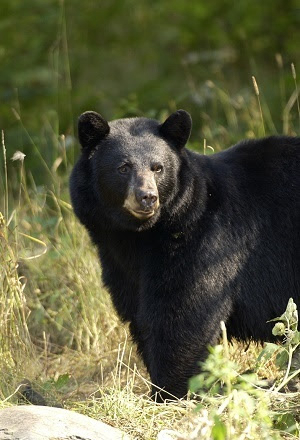
|
Take down bird feeders now to reduce conflicts with bears
|
Michigan black bears soon will be rising from hibernation and searching for a replenishing meal. In order to help local communities avoid potential conflicts with bears, the Department of Natural Resources recommends that residents consider taking down bird feeders and removing any food sources that might attract wildlife. Black bears are primarily found in the Upper Peninsula and the northern half of the Lower Peninsula. During hibernation, bears rely on fat reserves to keep them nourished. Bears rising from their dens will be hungry and in search of their next nourishing meal. Despite the abundance of natural food sources available in the springtime, bears prefer bird feeds and suet because of their high fat content and easy accessibility. When bears discover a bird feeder filled with a calorie-rich meal, they won’t soon forget and could become repeat visitors. “Bears are creatures of habit. Once they have found a reliable food source, they will return until the food source is removed,” said DNR large carnivore specialist Cody Norton. “While it can be exciting to see a bear, providing them food can cause problems for you, your neighbors and the bear.” Bears that rely on human food sources can regularly encounter people, too, often causing them to lose their natural fear of humans. A habituated bear is not easily scared out of an area and will continue to visit the area looking for a meal. This could result in a bear causing property damage and/or having to be relocated or euthanized. Food sources that can attract bears to your yard include bird feeders, trash cans, grills, pet foods, apiaries (where beehives are kept), bonfire pits and anything else that might contain food debris. Homeowners should take action to limit bear conflicts by taking down bird feeders, storing grills and trash cans in sealed buildings and cleaning all substances of food debris. Anyone who has removed a bird feeder and is still experiencing bear problems two to three weeks later is encouraged to contact the nearest DNR office and speak with the local staff for assistance. To learn more about Michigan’s black bear and how to be Bear SMART., visit Michigan.gov/Bear. Additional tips and information on how to handle conflicts with wildlife are available at Michigan.gov/Wildlife. |
Contact: Rachel Leightner, 517-243-5813